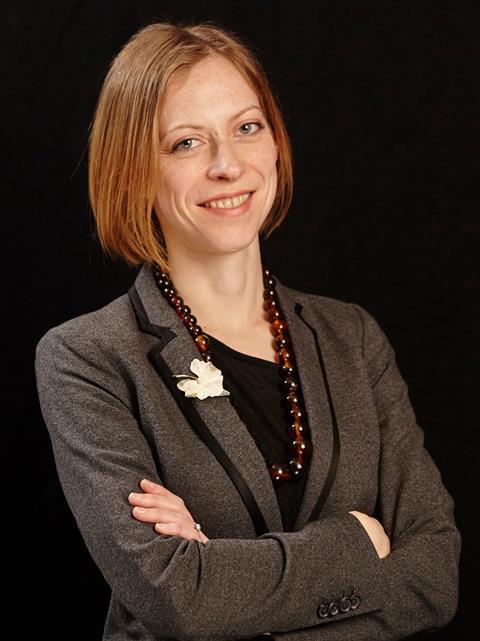Mentoring can help build a more diverse workforce that is better placed to confront the sustainability challenge, writes Hero Bennett

In the last few years there has been increased discussion about the benefits of a diverse workforce and how to improve opportunities in our industry, and while some change has happened, we still have a long way to go. The business case for diversity is well known, but what about the environmental case?
A recent study found that women in developed nations were up to 13% more likely to be concerned about climate change than men, yet just seven of the 110 world leaders who attended COP27 during the first week were women. At an organisational level, better diversity can help to tap into a broader talent base and therefore help to increase the supply of talent.
Unfortunately like many industries we have seen demand continue to outstrip supply. In particular, sustainability professionals have never been more sought after.
In our office we are striving to continually improve working conditions to make sure the profession remains attractive
The climate and biodiversity crisis is urgent – we have the remainder of this decade to make a meaningful impact. We have seemingly reached a tipping point where Environmental, Social and Governance (ESG) has moved into central business functions and, coupled with the energy crisis, decarbonisation and sustainability services are working harder than ever keep up with demand.
In our office we are striving to continually improve working conditions to make sure the profession remains attractive. We’re always looking for ways to improve diversity and inclusion within the team, in all senses; making sure there are clear routes for progression, regardless of an individual’s background and increasing the visibility of role models within the practice.
Flexible working for all team members was part of Max Fordham’s founding ethos, and we recently introduced improved paternity leave allowance and enhanced maternity benefits. In the last few years, we have set up a Black, Asian and Minority Ethnic network, as well as LGBTQ+, Women and Minority Genders, Dyslexia, and Chronic Illness and Disability networks. We are also reinvigorating our social value work, led by Senior Engineer Joanna John, creating new opportunities to work with local communities and embedding new approaches into our everyday work.
For me, my desire to serve society and tackle the climate crisis has driven my whole career
I decided I wanted to work in the built environment four years into my career, but my experience in fuel cell development until that point was somewhat unrelated to the role. Fortunately, Max Fordham have a policy of welcoming people from a variety of backgrounds and experience, otherwise I doubt I would have found it so easy to break into the profession.
For me, my desire to serve society and tackle the climate crisis has driven my whole career. In our working lives each of us has a huge capacity to do meaningful work that benefits society. This is a message I try to give my kids and I wish it was generally part of early career discussions.
When I studied physics as an undergraduate, I was told that we were the prime candidates for jobs in the finance sector. As someone with altruistic motivations this baffled me but, I realise now it may have potentially planted a seed for many others in the room.
Mentoring can help people from a wide range of backgrounds
Fast forward to today and many students do want to work in sustainability. An Engineering UK report found that students who agreed that ”engineers are important for improving the environment” were almost seven times more likely to be interested in a career that involves engineering, so this is a message we should be embedding at an early stage.
Mentoring can help people from a wide range of backgrounds access possible career options and help to feed a growing interest, but it doesn’t have to be a formal arrangement. In fact, a 2019 study found that 61% of mentoring relationships developed naturally.
I have found a couple of times a chance meeting has led to me later helping others to understand how to break into the sustainability profession. I have also had a number of key people who have helped me along the way. Two of those were my first manager, Michael Evans, now CEO of Cambridge Carbon Capture, who always advocated an unconventional approach, and later the ever-questioning Judith Sykes of Useful Simple Trust.
As sustainability professionals and engineers, each of us has the capacity and the agency to impact future practitioners
Finding a female mentor was essential in empowering me at a time when I was uncertain of what I could offer. Judith and I studied the same masters at Cambridge, later growing from friend to mentor. Witnessing her own career growth as well as her insightful advice helped both my thinking and confidence grow.
As sustainability professionals and engineers, each of us has the capacity and the agency to impact future practitioners. We should share our experiences generously with our networks of course, but also consider how to improve diversity by looking for opportunities to share with those outside of it.
This could be through reaching out to former universities, or a local school. Or getting involved with one of the many great organisations bringing people together such as social mobility charity, The Brokerage, or Career Ready which provides mentoring programmes. Our industry can and should be intentional about sharing the message that there is scope for everyone to impact sustainability.
Postscript
Hero Bennett is a partner, director and sustainability leader at Max Fordham
















1 Readers' comment